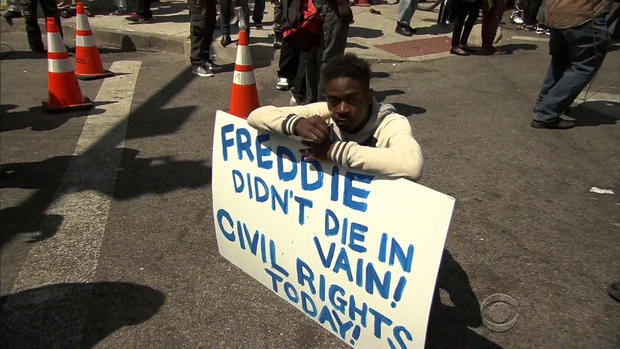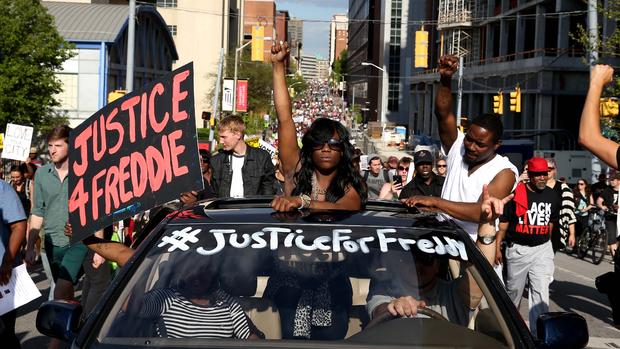Rift between police and community underlies Baltimore unrest
BALTIMORE -- The violence started yesterday after the funeral for Freddie Gray, who died last week of injuries he suffered while in police custody.
Six officers have been suspended. Results of a police department investigation are due to be turned over to prosecutors by Friday.
For West Baltimore residents like Melvin Towns, 16, the frustration wasn't just written on his protest sign. He says the death of Freddie Gray represents the larger problem between the police and the community.
He was asked how he feels about the police.
"I mean personally, I ain't going to lie to you, I don't like the police, just because of what they keep doing to my people -- my people. My black people," he said, explaining that people are furious. "It's beginning to become a routine with us. With the police."
Mike Ware, 34, says on the street, the routine of rounding up and arresting people is called a walkthrough.
What does that mean?
"The police don't want us right here on the corner, we're going to jail, we'll be home tomorrow morning," he said.
The divisions are not just along racial lines, they are economic too.
In Baltimore there are about 16,000 abandoned buildings, mostly in predominantly black neighborhoods.
In Sandtown, Freddie Gray's neighborhood, as of 2011 one of five adults was unemployed. And half the households made under $25,000 a year.
According to a Baltimore Sun investigation, the city has paid about 100 people more than $5 million to settle police brutality cases.
Ware called relations between the police and the community "as bad as good and evil."
To him that means "as bad as black and white," he said. "It's total opposites. They don't care about us, I know about people will get their houses broken into and will not call the police."
Valerie Pool prays the distrust and resentment doesn't destroy the city. Asked what's next for Baltimore, she answers: "You know what sir, I have no idea."
Baltimore City Police tactics have led to a consistent drop in murders, so far this year just 68. In the 90s, that was a number that routinely topped 300.

